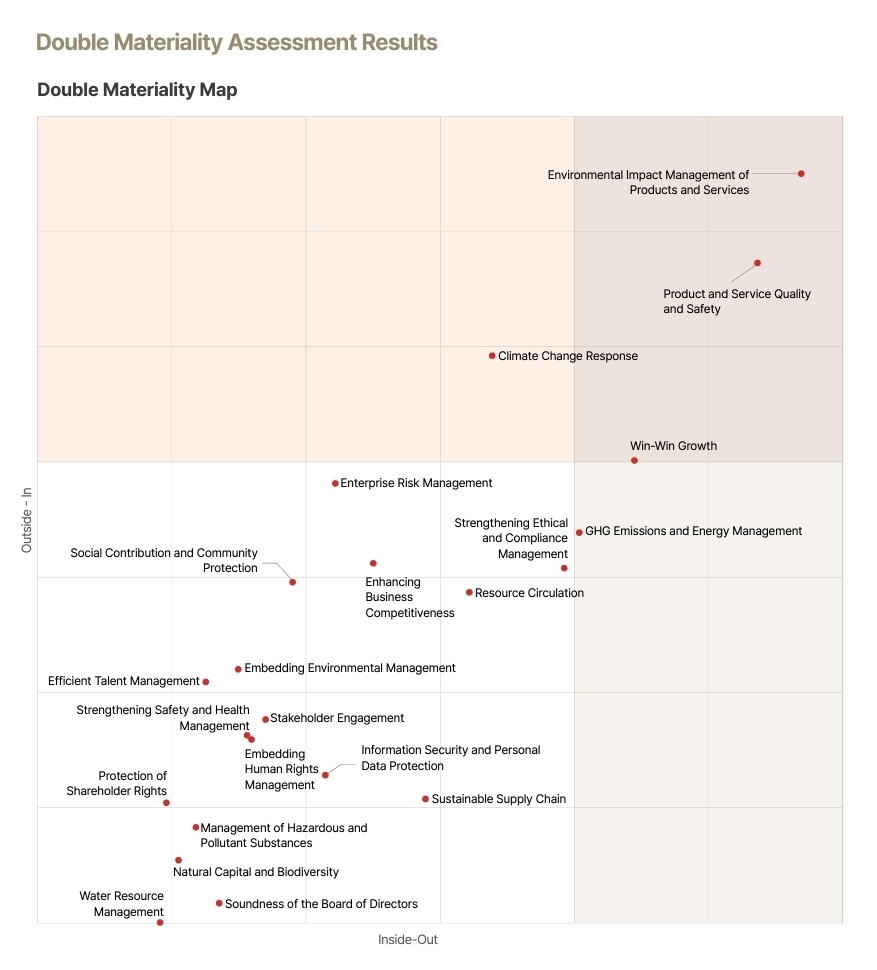LOTTE Shopping conducted materiality assessment to select key issues for ESG engagement.
Materiality assessment was conducted by analyzing common interest of various stakeholders and
issues with impact on the business of LOTTE Shopping based on GRI Standards,
a global guideline for preparing sustainability report, ISO 26000, a standard for
corporate social responsibility and UN sustainable development goals (SDGs) and issue pools and major issues were identified.
Materiality Assessment Process
-
Step1Analysis of Global Indicators and Internal/External Environment· Long List : Domestic and international ESG Disclosure initiatives, Evaluation indicators, Relevant laws and regulations
· Short List : Company’s materiality assessment results over the past three years, Media article analysis, Benchmarking of peer companies -
Step2Identification of Risks and Opportunities· Identification of risk and opportunity factors
· Analysis of impacts from risks and opportunities (positive/negative impacts) -
Step3Stakeholder Engagement for Materiality Assessment· Review of Impact Characteristics, Scale, Scope, Likelihood, and Recoverability by Issue
- (Internal employees) Perspective on the Issue’s Impact on Corporate Value and Business Operations
- (External stakeholders) Perspective on the Issue’s Impact on Stakeholders -
Step4Focus Group Interviews· In-depth collection of stakeholder perspectives on the nature, scale, scope, response capacity, and recoverability of each issue
- Engagement with external stakeholders, including academic institutions, investment entities, and media organizations -
Step5Materiality Measurement and Board Reporting· Assessment of materiality results by evaluating both the company’s impacts on society and the environment (inside-out) and the effects of societal and environmental changes on the company (outside-in)
· Reporting issue-specific risks and opportunities, along with materiality assessment results, to the Board of Directors
Materiality Assessment Result

| Issue Name | Change from 2023 | GRI Topic | |
|---|---|---|---|
| 1 | Environmental Impact Management of Products and Services | Upward | - |
| 2 | <Product and Service Quality and Safety | New | 416-1~2 |
| 3 | Win-Win Growth | New | - |
| 4 | Climate Change Response | Downward | 201-2 |
| 5 | GHG Emissions and Energy Management | New | 302-1~4, 305-1~5 |


